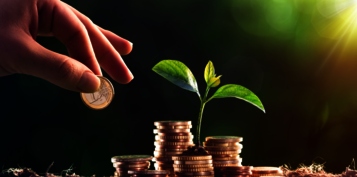Revisiting renewables
Renewables could be worth a second look, writes Cherry Reynard.

World leaders gathering in the UAE for the COP 28 at the end of November are likely to reach the now-familiar conclusion that countries ‘could do better’ on net zero targets. A cursory glance at the recent returns of renewable energy and environmental trusts – and their wide discounts to net asset value – might also suggest a growing disillusionment with the green agenda.
James Carthew, head of investment companies at QuotedData, says: “Discounts on renewable energy funds are extreme and falling share prices have driven some of them onto double-digit yields. Governments, including that of the UK, have been reining in climate change policies and there seems to be a race to approve new oil and gas projects on the grounds that we’ll be using fossil fuels for years yet.” He believes it is unlikely that anything will emerge from COP 28 that will be of meaningful benefit to the renewables and environmental sectors.
There has also been gloomy news elsewhere. Orsted has had to axe to New Jersey wind projects, taking a $4bn impairment, while Swedish multinational power company Vattenfall has abandoned the 1.4-gigawatt Norfolk Boreas offshore project. Both cite rising build costs and weak profitability.
This difficult backdrop has also come at a time when renewable energy infrastructure and green investment companies have also been hit by rising interest rates. Gavin Haynes, investment consultant at Fairview Investing: “A higher for longer interest rate environment needs to be priced into the funding of these long-term projects and has also led to income-seeking investors ditching these investment trusts in favour of less risky assets.” The final problem for many funds, says Carthew, has been sustained selling by fund of funds and wealth managers because of complex new rules on cost disclosure.
“The tide may be turning for this part of the market, as interest rates peak and many of the concerns that have preoccupied investors start to shift. Equally, the backtrack from net zero may have been overplayed, particularly if consumers start to realise the benefits. These trusts may be worth a second look.”
Cherry Reynard
A stronger outlook?
The question is whether this selling has gone far enough, and the sector now holds opportunities for green-minded bargain hunters. Certainly, there is still a lot of capital sloshing around the green energy sector from government spending programmes such as Fit for 55 from the EU, or the Inflation Reduction Act in the US. Regulation and incentives are steering companies and households down an electrification route, creating opportunities for solar, wind or battery providers.
The world’s largest offshore wind farm, Dogger Bank, has recently connected to the grid. When complete, it should provide enough power for 6m homes across the UK. Then there are the much-needed developments in grid technology. National Grid announced the details of its ‘Great Grid Upgrade’ in April, with plans for increased capacity and connectivity, plus enhancements to battery storage.
Haynes says: “The structural long-term growth dynamics remain in place for renewable energy. It is perhaps not surprising that there were going to be growing pains after the huge enthusiasm that saw a wide range of launches in areas such as wind, solar and battery storage. With interest rates looking like they are peaking, the cyclical headwinds seem to be abating and the discounts on offer in the sector looks to provide some contrarian opportunities.”
Carthew says the selling associated with cost disclosure rules is coming to an end and the discounts compensate investors for many of the risks. He highlights Gore Street Energy Storage Fund, which trades on a 39.8% discount to NAV and has a 10.9% yield, or NextEnergy Solar Fund on a 25.2% discount with a yield of 10.2%. Haynes favours Impax Environmental Markets and the Renewables Infrastructure Group.
Ben Guest, head of the Gresham House New Energy division, also disputes the idea that consumers will have to bear significant costs. He says that reliance on fossil fuels has left the world dependent on finite commodities that are not produced domestically. The prices have been subject to manipulation and shocks, and costs have kept rising over time. He adds: “Electricity generation – solar panels, wind turbines – and energy consumption – heat pumps, solar panels – are all deflationary technologies.” He says this is “brilliant news” for the consumer.
The tide may be turning for this part of the market, as interest rates peak and many of the concerns that have preoccupied investors start to shift. Equally, the backtrack from net zero may have been overplayed, particularly if consumers start to realise the benefits. These trusts may be worth a second look.







